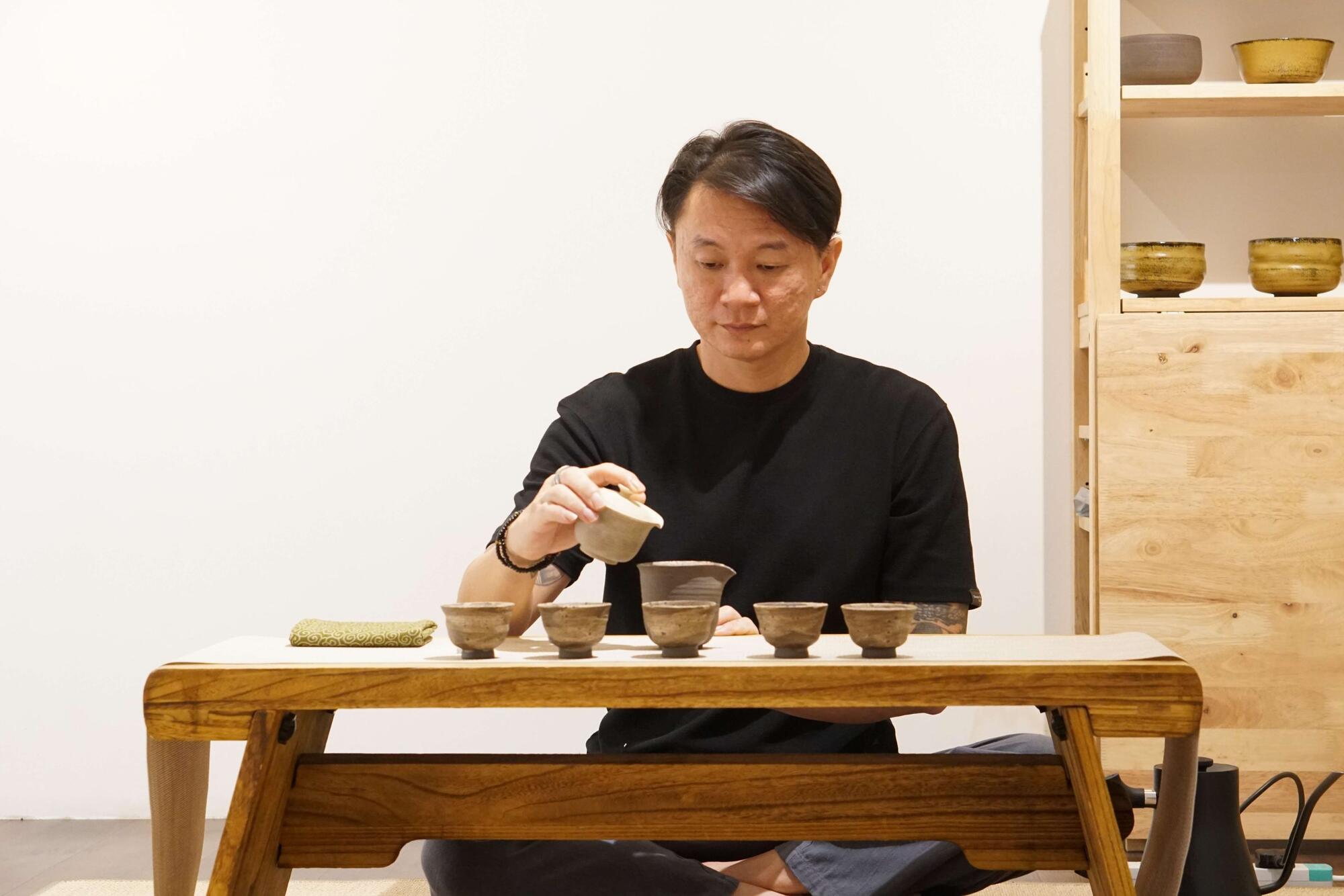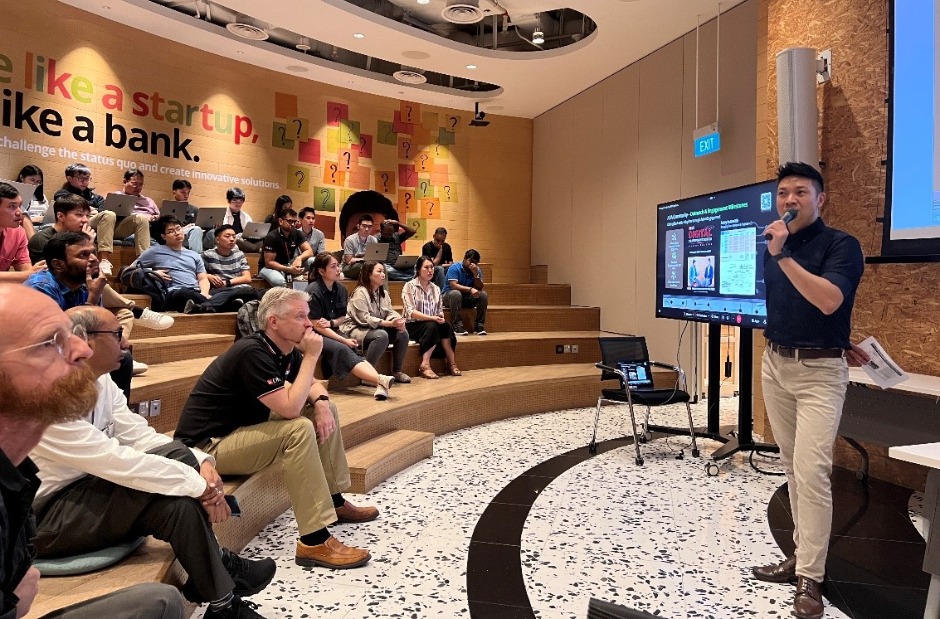Putting the plus in their work attachments – teachers bring real-world insights to their classrooms
10 Feb 2023
ef77a0a7a8a66eb2afccc900c73e6f2e.jpeg)
How do teachers keep up to date with industry trends? Through the Teacher Work Attachment Plus (TWA+) programme, teachers gain first-hand insight into the work of different sectors, which in turn boosts their lessons and professional skills.
Three teachers, who signed up for stints at the Urban Redevelopment Authority (URA), Institute of Mental Health (IMH), and the Science Centre Singapore, tell us what their experiences mean to them and their students.
By Jacquelyn Ng
After teaching Chemistry and Physics for 11 years, Mr Bernard Ng decided it was time to enrich his lessons and took a month off.
He had learned about the Teacher Work Attachment Plus (TWA+) programme run by the Ministry of Education, which facilitates short-term exposure and learning opportunities for teachers in various sectors and industries, both private and public.
Eager to beef up his knowledge of real-world applications and practices related to his area of teaching, Mr Ng signed up for a four-week stint with the Science Centre Singapore in May 2021. Specifically, the teacher with Edgefield Secondary School was eager to explore what goes on behind the scenes at the centre, to see what he could bring back to school to enhance his lessons.
Enhanced in 2021, the TWA+ provides structured professional learning opportunities in a wider range of industry clusters. This ranges from e-commerce to the creative arts, and teachers can pick attachments in areas that may not be related to their teaching subjects. Over two to four weeks, they take on work at their chosen organisation through hands-on projects or by shadowing an officer.
Three teachers, who embarked on attachments to the Urban Redevelopment Authority, Science Centre Singapore and the Institute of Mental Health, tell us how their attachments influenced their teaching when they returned to the classrooms.
Ms Lim Dun Lin, Teacher, Project Work, Anderson Serangoon Junior College
.jpg) Ms Lim Dun Lin, third from left, with her students from Anderson Serangoon JC.
Ms Lim Dun Lin, third from left, with her students from Anderson Serangoon JC.
Ms Lim Dun Lin, a Project Work (PW) teacher at Anderson Serangoon Junior College, says the most-asked question from her students is this: “Any tips to prepare myself for the working world?”
To their surprise, Ms Lim advice is not to focus on their grades. Not overly so, at least.
Ms Lim’s conviction is fueled by her two-week TWA+ stint at the Urban Redevelopment Authority (URA) in 2019. “On one occasion, the team at URA spent multiple days huddled together as we tried to find a solution to an issue we faced. That was the most pertinent observation for me: the key skillsets for the workplace may not just be about ‘hard’ skills.
“Working together as a team, solving problems in creative ways and facing setbacks with optimism – I’d go as far as saying that these skills matter more than a string of As on their result slip!”
Ms Lim also muses that her students become rapt with attention when she shares examples of what she did at URA.
Attached to the Corporate Communications department, Ms Lim developed materials targeted at youths for the Singapore City Gallery. To plan for these packages, she spoke to URA officers and historians, and researched the different challenges that Singapore faces.
She then brought these insights back into the classroom.
During Project Work discussions, she shares that projects, policies and developments are designed in the real world. In URA’s case, it is with the needs of Singapore and her people in mind. She brings up the innovative solutions that Singapore has adopted when managing challenges in urban development, such as the District Cooling System around Marina Bay.
She has observed that such conversation sparks a shift in her students’ mindset. Instead of searching for model answers to a question, over the course of the year, they gradually seemed more open to exploring fresh perspectives and adapting from known solutions.
Ms Lim believes they were inspired by how the uniqueness of Singapore’s position calls for creativity in innovating and managing within her constraints. There is no one-size-fits-all solution towards a nation’s development or indeed, many issues in life.
Mr Bernard Ng, Senior Teacher, Chemistry and Physics, Edgefield Secondary School
-(1).jpg) Mr Bernard Ng conducting an enrichment session explaining the research that won the 2019 Nobel Prize in Chemistry.
Mr Bernard Ng conducting an enrichment session explaining the research that won the 2019 Nobel Prize in Chemistry.
While most children fondly remember their time at the playground or library as part of their childhood, Mr Bernard Ng’s most exciting memory while growing up was his excursions to the Science Centre Singapore.
He loved the science and technology institution so much, he calls it his “Science Disneyland”; he recalls the joy of taking part in its Young Scientist Programme, and how he constantly ‘bugged’ his Science teacher and parents to work with him on the various projects as part of the programme.
No surprises that he would choose to be a Science teacher when he grew up, and when the chance came for him to pick an attachment stint in 2021, he jumped at playing visitor guide to his favourite playground.
Through his four-week stint, he aimed to bring elements of its programmes into his school’s curriculum and programmes – from design considerations to implementation – to engage the younger generation.
Mr Ng was attached to the Gallery Exhibitions team, where he considered how the exhibitions and demonstration shows could be made more exciting for guests.
“We looked into all the details that I might not usually have thought of – from ticketing to the number and location of toilets. We even considered the quantity and type of lighting for each exhibit,” he recalls.
Back in the classroom, Mr Ng grew a heightened awareness of the “student experience”. He became more sensitive to ensuring a conducive classroom set-up for lessons.
Mr Ng started to include audio and video guides on top of written instructions for Home-Based Learning tasks, for example. “I realised this might appeal to different types of learners, and would also make the assignment slightly more interesting,” he says.
He also redesigned his Google site to minimise the number of clicks required for students to access lesson resources and supplementary materials. These tweaks paid off – students spent an average of 10 minutes longer on the site in comparison to before.
“Prior to the attachment, my view of teaching was centred around curriculum delivery and assessments. The Science Centre experience got me to think about the wider learning experience of the student.”
Mr Derek Foo, Teacher, Project Work, Anderson Serangoon Junior College
-(1).jpg) Mr Derek Foo, foreground, with his Project Work students at Anderson Serangoon JC.
Mr Derek Foo, foreground, with his Project Work students at Anderson Serangoon JC.
Mr Derek Foo, who teaches Project Work to junior college students, wanted to support the mental well-being of his students. It was 2019, when he felt that students were becoming increasingly more comfortable discussing their mental health and struggles, and he wanted to be a better mentor to them in that respect. With that, he decided to embark on an attachment with the Institute of Mental Health (IMH) to better understand the issues.
Over four weeks, Mr Foo’s involvement ranged from intimate clinical sessions with a specialist teacher for children with developmental issues, to ward rounds that involved bigger group discussions between doctors, case managers, medical social workers and psychologists assessing various patient needs. He visited a variety of wards, clinics and units that looked after different patient demographics with varying degrees and types of mental illness.
“Through these visits, I was privileged to be able to interact with the nurses on site and hearing about their experiences, challenges and motivations working in this environment.”
How has this changed the way he teaches in school?
Today, Mr Foo intentionally sets aside time weekly to discuss stress management in class. “The attachment helped me go slightly beyond discussing basic mental wellness tips, and I can delve into the value of seeking professional mental healthcare if needed.”
“Beyond just reading up on mental health topics, I experienced first-hand how mental health issues – including its management and treatment – are managed. This puts me in a better stead when guiding my students, which hopefully encourages them to speak to me when they wish to discuss mental health struggles and issues instead of turning to social media, which some of them do.”
He also recalls an incident where his student, Jane*, was warded at IMH because of depression. Her parents were concerned, as they were uncertain of the treatment of patients at the hospital.
Mr Foo took the opportunity to share his observations.
“I had to dispel the notion that the IMH is a place only for severely mentally ill patients.”
Having spent extended time interacting with patients at the Department of Child and Adolescent Psychiatry (DCAP) Ward, Mr Foo also learnt about their experiences and perspectives of the children, which allowed him to understand what Jane was going through.
He adds, “While maintaining confidentiality of the patients, I encouraged Jane and her parents by sharing examples of how other students managed their illness and continued to experience a fulfilling school life.”
Embracing a spirit of learning
The teachers agree that taking time off from their busy school schedules for their various attachment stints was worth it. Their colleagues, who stand in for them during the attachment period, do so willingly. After all, it’s not just the teachers who attend the attachments who benefit. Ms Lim, Mr Ng and Mr Foo, for instance, eagerly share their learning points with their colleagues.
“I’m aiming to attend another attachment when the opportunity arises. I’m also encouraging my colleagues to give it a shot,” shares Ms Lim. “The experience is largely different from school life, which gives me new ideas on how to make my lessons better.”
The biggest beneficiaries? The students, who enjoy more engaging lessons, are better supported, and have a deeper appreciation of the working world.
We are on Telegram! Subscribe to our channel: https://t.me/schoolbag_edu_sg



.jpg)

.jpg)